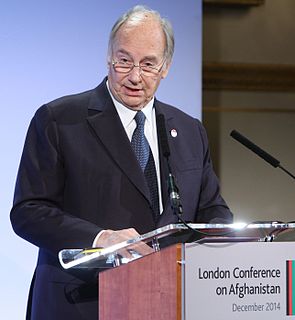A Quote by Alfred Marshall
The hope that poverty and ignorance may gradually be extinguished, derives indeed much support from the steady progress of the working classes during the nineteenth century.
Related Quotes
Given that the nineteenth century was the century of Socialism, of Liberalism, and of Democracy, it does not necessarily follow that the twentieth century must also be a century of Socialism, Liberalism and Democracy: political doctrines pass, but humanity remains, and it may rather be expected that this will be a century of authority ... a century of Fascism. For if the nineteenth century was a century of individualism it may be expected that this will be the century of collectivism and hence the century of the State.
I would like to remind you that both assimilation and integration apply to the working classes in the nineteenth century, at least in Britain and also Germany. Like most outsider groups compared with the establishment, the working classes were treated more or less with the same kind of stigmatization as immigrant groups are treated today.
Christian Science has always appealed to the middle-classes and the upper middle classes. In part, this is because it requires a certain amount of education to study 'Science and Health' to the degree that Christian scientists do. It's not an easy book to read! It's 700 pages, and it's written in a nineteenth-century manner and diction.
Upward mobility across classes peaked in the U.S. in the late 19th century. Most of the gains of the 20th century were achieved en masse; it wasn't so much a phenomenon of great numbers of people rising from one class to the next as it was standards of living rising sharply for all classes. You didn't have to be exceptional to rise.
The use of the word royalty, as fee to a proprietor for the exploitation of a work or property, derives from the period when the sovereign assumed title to all wealth of the realm. It was the struggle for freedom from these encroachments of the state that chiefly marked the Nineteenth Century, and established everywhere constitutional regimes of limited authority. In the Twentieth Century, however, we have witnessed a gradual and almost unrestricted movement back to state authoritarianism, primarily in the economic sphere, accompanied by the spread of state monopoly and intervention.
In the supposedly enlightened eighteenth and nineteenth centuries, parental indifference, child neglect, and raw cruelty appearedamong Europeans of all classes.... In mid-nineteenth- century France, families abandoned their children at the rate of thirty-three thousand a year.... It took sixty years after the criminalization of cruelty to animals for cruelty to children to be made punishable under English law.... Industrialized America added brutalizing child labor to the oppressions of the young.
Most of what I read is for reviewing purposes or related to something I want to write about. It's slightly utilitarian. I definitely miss that sense of being a disinterested reader who's reading purely for the pleasure of imagining his way into emotional situations and vividly realized scenes in nineteenth-century France or late nineteenth-century Russia.




































